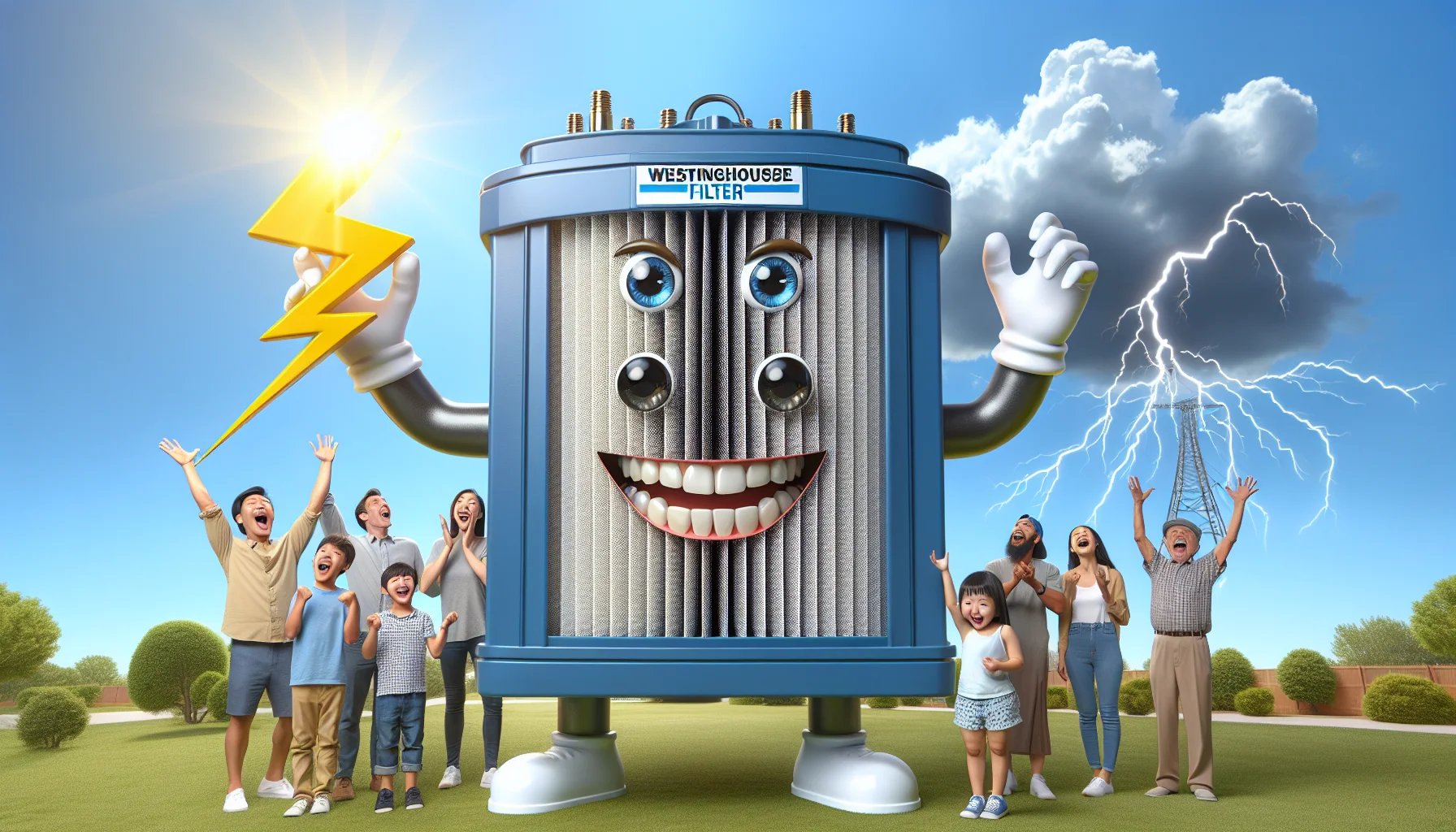Westinghouse Filter Quiz
Test Your Knowledge
Question of
Understanding Westinghouse Filters in Electricity Generation
Westinghouse filters play a crucial role in the process of generating electricity, especially in power plants that require the utmost purity in cooling water and other fluids used in the generation process. These filters are designed to remove particulates, contaminants, and other impurities from fluids, ensuring that turbines and other critical components operate efficiently and safely. By maintaining the cleanliness of these fluids, Westinghouse filters help in minimizing wear and tear on machinery, reducing downtime, and extending the lifespan of the equipment involved in electricity generation. This not only improves the reliability of the power generation process but also enhances the overall efficiency and productivity of the plant.
Types of Westinghouse Filters
- HEPA Filters - High Efficiency Particulate Air filters for removing airborne particles.
- Carbon Filters - Used for removing gases, odors, and volatile organic compounds (VOCs).
- Pre-Filters - Designed to capture large particles before they reach the main filter, extending its life.
- Ion-Exchange Filters - Employed for water purification processes to remove ions and replace them with other ions.
- Ultraviolet (UV) Filters - Utilize UV light to kill or inactivate microorganisms, ensuring water and air purity.
The Importance of Filter Maintenance
Maintaining Westinghouse filters is crucial for efficient electricity generation for several reasons. First, clean filters ensure the optimal functioning of the machinery, preventing overheating and reducing the risk of unexpected shutdowns. This not only extends the lifespan of the equipment but also ensures a consistent supply of electricity. Furthermore, regular filter maintenance helps in keeping energy consumption at a minimum, which is essential for both economic and environmental sustainability. Lastly, it ensures compliance with regulatory standards, helping to avoid fines and contributing to the overall safety of the operation. Therefore, regular checks and timely replacement of Westinghouse filters are indispensable practices for any facility committed to reliable and efficient electricity generation.
How Westinghouse Filters Improve Power Plant Efficiency
Westinghouse filters play a crucial role in enhancing the efficiency and reliability of power plants. These filters are designed to remove particulates and contaminants from various fluids and gases involved in the power generation process, such as water, oil, and air. By ensuring cleaner inputs, Westinghouse filters help in maintaining the optimal performance of turbines, boilers, and other critical components. This not only leads to a more efficient generation of power but also extends the lifespan of the equipment, reducing downtime and maintenance costs. Moreover, by improving operational efficiency, these filters contribute to reducing the environmental impact of power generation, aligning with global efforts towards cleaner energy production.
Installation Process of Westinghouse Filters in Power Plants
The installation of Westinghouse filters in power plants involves several critical steps to ensure efficient operation and compliance with environmental standards. Initially, a thorough site assessment is conducted to determine the optimal location and configuration for the filters, taking into account the specific needs of the facility. Following this, the necessary infrastructure, including support structures and electrical connections, is established. The filters are then carefully installed, ensuring that they are securely positioned and connected to the plant's systems. After installation, a series of tests are performed to confirm the filters' functionality and efficiency. Finally, staff are trained on the operation and maintenance of the Westinghouse filters to guarantee their long-term effectiveness and reliability in filtering pollutants from emissions, thus contributing to cleaner energy production.
Case Studies: Westinghouse Filters in Action
- Increased Efficiency in Nuclear Plants: Implementation of Westinghouse filters led to a 10% increase in cooling efficiency, significantly reducing the operational costs and enhancing safety protocols.
- Improvement in Coal Power Stations: By using advanced filtration solutions, a notable reduction in particulate emissions was achieved, aligning with stricter environmental regulations and improving air quality.
- Renewable Energy Support: Westinghouse filters were crucial in maintaining the reliability and efficiency of hydroelectric power stations, ensuring uninterrupted power supply even during peak demand periods.
- Gas Turbine Protection: The adoption of specialized air intake filters extended the life of gas turbines by preventing the ingress of harmful particles, thus maintaining operational efficiency and reducing maintenance costs.
Future of Electricity Generation: The Role of Westinghouse Filters
In the foreseeable future, Westinghouse filters are expected to play a pivotal role in the evolution of electricity generation. These advanced filtration systems, known for their efficiency and reliability, are likely to become integral components in both traditional and renewable energy plants. As the demand for cleaner and more sustainable energy sources grows, Westinghouse filters' ability to reduce emissions and improve the overall efficiency of power generation systems will become increasingly valuable. Moreover, their adaptability to various energy technologies will facilitate a smoother transition to renewable sources, such as solar and wind, ensuring a more sustainable and environmentally friendly approach to electricity generation. In essence, Westinghouse filters are poised to significantly contribute to the future landscape of energy production, marking a key step towards achieving global energy sustainability goals.












